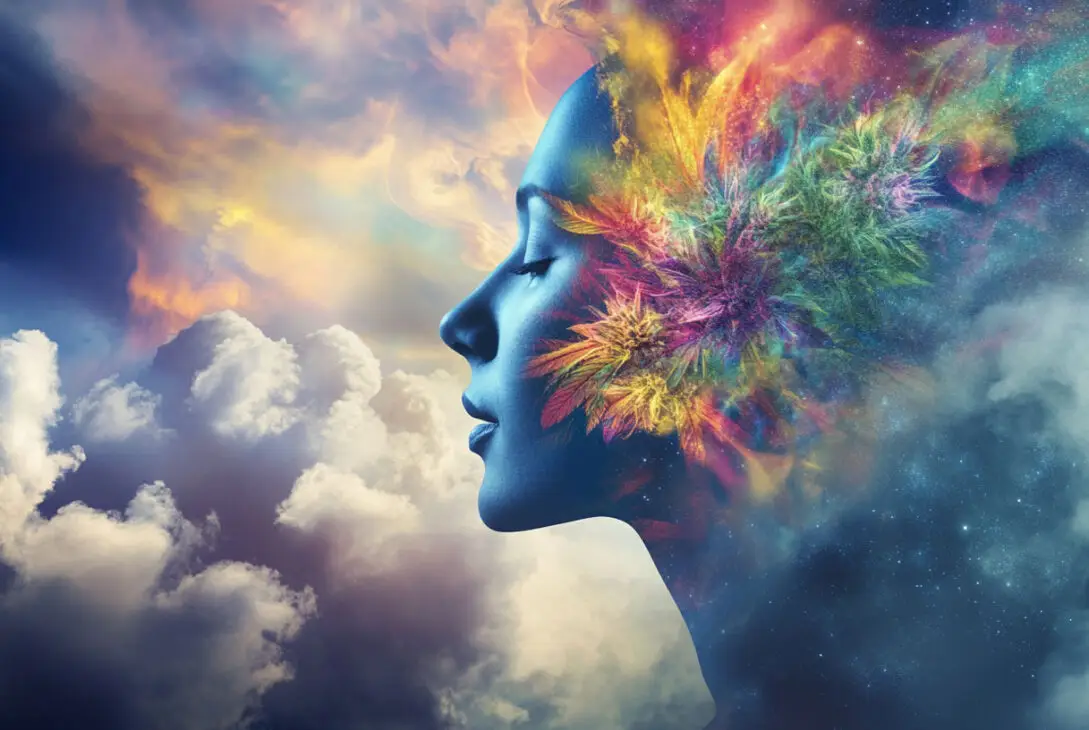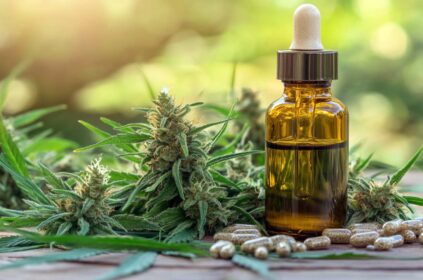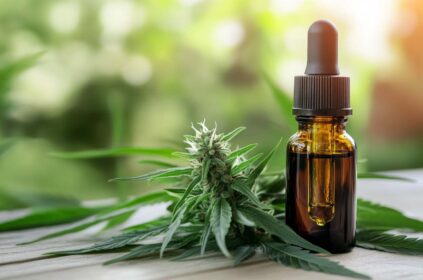Introduction
In a world that sometimes feels overwhelming, the quest for effective mental health solutions has led many individuals to explore alternative therapies. One such alternative that has recently captured attention is cannabidiol, or CBD, a non-psychoactive compound sourced from the hemp plant. Unlike its cousin THC, CBD doesn’t produce a ‘high,’ making it an appealing option for those interested in natural remedies. As anxiety and depression rates soar, increasingly more people are turning to CBD as a potentially effective ally in their mental wellness journey. In this comprehensive guide, we will explore the current research, benefits, and uses of CBD in mental health scenarios, creating a roadmap for those interested in this alternative.
Understanding CBD and Its Forms
To effectively appreciate CBD’s potential, it’s essential first to familiarize ourselves with the different types of CBD products available on the market:
- Full-Spectrum CBD: This form includes all cannabinoids present in the hemp plant, including a trace amount of THC (up to 0.3%). The entourage effect, caused by the interaction of various cannabinoids and compounds, is believed to enhance the therapeutic benefits of CBD.
- Broad-Spectrum CBD: This variant avoids THC entirely, making it an excellent choice for those who are sensitive to THC or simply prefer to avoid it. It still includes other cannabinoids and compounds that may offer additional benefits.
- CBD Isolate: This is the purest form of CBD, containing no other cannabinoids or compounds. It’s suitable for those looking for a non-psychoactive product and is often tasteless and odorless.
Anxiety Relief
CBD has emerged as a powerful contender in the mental health arena, particularly concerning anxiety relief.
- Clinical Studies: Research indicates that CBD may effectively reduce anxiety symptoms. For example, a study involving individuals with social anxiety disorder found that CBD significantly lowered anxiety levels during public speaking tasks, leading to decreased physiological markers of anxiety, such as heart rate and blood pressure. By Week 4, anxiety symptoms were notably reduced compared to baseline scores.
- Mechanisms: CBD interacts with the endocannabinoid system, particularly serotonin receptors in the brain. This interaction can help regulate mood and anxiety. In addition to modulating anxiolytic pathways, CBD’s impact on brain structures associated with anxiety, like the amygdala, offers insight into its beneficial effects.
- User Reports: Anecdotal evidence bolsters these findings, with approximately 70% of individuals utilizing CBD reporting substantial improvements in their anxiety symptoms. Stories abound of people finding renewed hope and improved quality of life after integrating CBD into their routines.
Depression and Mood Enhancement
The relationship between CBD and depression is under vigorous investigation, and while the evidence is still forming, there are promising indications.
- Preclinical Studies: Research has shown that CBD may induce changes in neuroplasticity, which are important for mood regulation. These changes enable the brain to form new connections, contributing to improved emotional responses and potential anti-depressant effects.
- Human Studies: Some early human studies point towards a reduction in depressive symptoms following CBD use. However, the evidence is still emerging, and future longitudinal studies are essential to draw more comprehensive conclusions.
- User Reports: Many individuals have reported experiencing a lift in mood and overall well-being while consuming CBD products. These personal stories, although anecdotal, lend important insights into CBD’s potential effect on mood.
Stress Relief
Stress, a prevalent issue in our fast-paced society, can lead to various health concerns, including anxiety and depression. CBD’s properties may assist in managing stress effectively:
- User Reports: A considerable number of CBD users have turned to these products to help alleviate their stress levels. A study highlighted that 65.3% of participants cited stress relief as their primary reason for opting for CBD, showcasing its perceived effectiveness.
- Clinical Implications: People with psychiatric conditions or those on psychotropic medications are increasingly opting for CBD to combat stress. This growing trend hints that CBD could serve as a supportive therapy alongside existing treatments.
Sleep Improvement
Sleep disturbances are often intertwined with mental health issues, and CBD may offer potential solutions:
- Mixed Findings: The research regarding CBD’s impact on sleep is varied. Some studies suggest that lower doses (18–25 mg) can improve sleep quality, particularly in those with chronic sleep difficulties. However, findings remain inconsistent, indicating that more research is necessary.
- User Reports: Despite the mixed clinical evidence, many users have reported sleeping better after incorporating CBD into their nighttime routines. Feedback often describes enhanced sleep quality and reduced nighttime awakenings, making it a sought-after option for many.
Safety and Side Effects
Understanding the safety profile of CBD is crucial as interest in its therapeutic potential spreads:
- Safety Profile: Generally, CBD is well-tolerated by most people. Common side effects, such as mild sedation, vivid dreams, and gastrointestinal discomfort, are usually manageable and tend to decrease over time.
- Interactions: Individuals on prescribed medications should consult with their healthcare providers, as CBD can affect how these medications work in the body. Open communication with a healthcare provider is essential to ensure safety and avoid adverse interactions.
How to Use CBD for Mental Health
For those considering incorporating CBD into their mental health regimen, here are some practical steps:
- Dosage: Current research does not provide formal dosage recommendations for CBD in mental health contexts. Studies vary widely in their dosages, ranging from 300 mg to over 800 mg daily. It’s always advisable to start with a lower dose, assess how your body responds, and adjust accordingly based on recommendations from healthcare professionals.
- Administration Methods: Sublingual administration (placing drops under the tongue) is popular for non-cannabis users, as it tends to provide quicker effects. Other methods include capsules, edibles, and topical applications, each with its own absorption rates and effects.
Market Impact and Trends
The burgeoning CBD market reflects an expanding interest in natural wellness solutions:
- Market Value: Valued at USD 5.18 billion in 2021, the global market for CBD continues to grow, fueled by consumer curiosity. As more people explore natural remedies, the appeal of CBD as a mental health tool is rising.
- Shift in Attitudes: Many Americans are actively seeking alternative therapies to traditional medications, pushing the trend toward CBD in mental health support. The perception of CBD as a natural and safe option adds to its appeal in this realm.
Conclusion
CBD presents a host of promising potential benefits for mental health, particularly in alleviating symptoms associated with anxiety, depression, and stress. While results from current studies are encouraging, it’s vital for individuals to approach CBD with a discerning lens:
- Consult Healthcare Providers: Speak with your healthcare provider before incorporating CBD into your routine, especially if you are on other medications.
- Monitor Your Response: Pay attention to how your body responds to different dosages and administration types. Adjust accordingly, using a mindful approach to find what works best for you.
- Stay Informed: Educate yourself with continuing research and findings in the field of CBD and mental health. This awareness will empower you to make the best choices for your well-being.
As our understanding of CBD evolves, it holds the potential to become an increasingly vital component in the toolkit for managing mental health challenges. For those exploring this natural remedy, the journey may lead to improved mental well-being and enhanced quality of life.




















